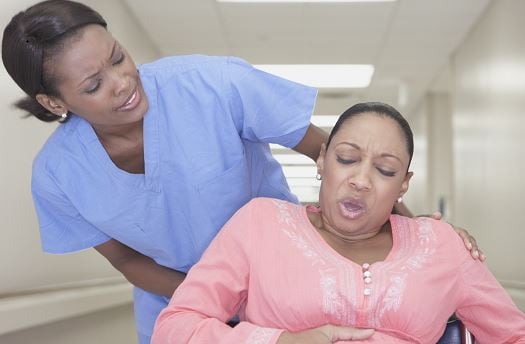From conception to birth, pregnancy follows a number of steps in your body. One of them is the journey of the fertilized egg to the uterus. Sometimes, this doesn’t happen.
In the case of an ectopic pregnancy, the fertilized egg doesn’t attach to the uterus. Instead, it may attach to the fallopian tube, abdominal cavity, or cervix. Ectopic pregnancies are the pregnancies which grow outside your uterus, usually in your fallopian tube. They are not common, but they can be very serious and they will need to be treated. They’re also known as tubal pregnancies.
What’s a Tubal Pregnancy?
Normal babies grow inside your uterus, after the fertilized egg travels though the fallopian tube and plants itself on your uterine wall. But an ectopic pregnancy sees the fertilized egg attaching somewhere else in your body, most times in the fallopian tube. Hence the name, tubal pregnancy. Sometimes, the pregnancy can also plant itself on your ovary, or somewhere else in your belly.
Only 2 out of every 100 pregnancies are ectopic pregnancies, making it a very rare pregnancy complication. However, it could be fatal if not treated early, when the fallopian tubes break because they’re over-stretched by the growing pregnancy. This is called a ruptured ectopic pregnancy, and it can lead to internal bleeding, infection, and even death sometimes.
What Are The Symptoms of Ectopic Pregnancies?
Most of the time, an ectopic pregnancy develops within the first few weeks of pregnancy. You might not even know you’re pregnant and may not have signs of a problem. Its symptoms are also quite like pregnancy symptoms so you might mistake it for an actual pregnancy. Light vaginal bleeding and pelvic pain are usually the first symptoms, but others could include:
- Nausea and vomiting with pain
- Sore and Heavy breasts
- Sharp abdominal cramps
- Vaginal spotting
- Low blood pressure (also caused by blood loss)
- Lower back pain
- Pain on one side of your body
- Dizziness or weakness (caused by blood loss)
- Pain in your shoulder, neck, or rectum
Who Is At Risk Of An Ectopic Pregnancy?
All sexually active women are at some risk of an ectopic pregnancy. But the risks are higher when you’re trying for a baby at 35 years and older. Also when you smoke; conceived despite tubal ligation or an IUD; or conceived using fertility drugs. You’re also at risk when you have a history of any of the following:
- pelvic surgery, abdominal surgery, or multiple abortions
- pelvic inflammatory disease (PID)
- endometriosis
- ectopic pregnancy
- sexually transmitted diseases (STDs), such as gonorrhea or chlamydia
How Is An Ectopic Pregnancy Diagnosed?
Your doctor will diagnose an ectopic pregnancy, by first a pelvic exam to look for pain, tenderness, or a mass in the abdomen. He will also check your uterus for a fetus, using the ultrasound. Next, he will measure your hCG levels. The measurement of hCG levels is also important. An hCG level that is lower than expected is one reason to suspect an ectopic pregnancy. Your doctor may also test your progesterone levels because low levels could be a sign of an ectopic pregnancy. Finally, your physician may do a culdocentesis, a procedure that involves inserting a needle into a space at the very top of the vagina, behind the uterus and in front of the rectum. The presence of blood in this area means you may be bleeding from a ruptured fallopian tube.
How is Ectopic Pregnancy Treated?
Ectopic pregnancies are treated in any of the following ways:
- A medicine called Methotrexate may be given you. It allows the body absorbs the pregnancy tissue and may save the fallopian tube, depending on how far the pregnancy has progressed.
- If the tube is stretched or has ruptured and is bleeding, part or all of it may have to be removed. Bleeding needs to be stopped immediately and emergency surgery is necessary.
- Laparoscopic surgery under general anesthesia may be performed. This procedure involves a surgeon using a laparoscope to remove the ectopic pregnancy and repair or remove the affected fallopian tube.
Home Care
You will receive specific instructions on the care of your surgical incision regarding the care of your incisions after surgery. Your main goal is to keep your incisions clean and dry while they heal. Check them daily for infection signs, which might include:
- excessive bleeding that doesn’t stop
- smelly discharge from the wound
- hot to the touch
- redness
- swelling
Expect some light vaginal bleeding and small blood clots up to six weeks after surgery. Then you must take some selfcare precautions. Don’t lift anything heavy, drink plenty of fluids, refrain from sexual intercourse, tampon use, and douching. Finally, rest as much as possible the first week post-surgery, and then slowly increase activity in the next weeks.
Always notify your doctor if your pain increases or you feel something is out of the ordinary.
Life After An Ectopic Pregnancy
The loss of a pregnancy, no matter how early, is very painful. You will need a strong support system. Don’t be afraid to ask friends and family for support. If there are any support groups in your hospital, church or mosque, find out and join one. If it is counselling you need, by all means go for counselling. Also, take care of yourself through rest, eating healthy, and exercising when possible. Give yourself time to grieve.
Don’t forget that many women go on to have healthy pregnancies and babies after ectopic pregnancies. When you’re ready, talk to your doctor about ways you can ensure that your future pregnancy is a healthy one.
This article was first published on AfricaParent.com
Copyright 2024 TheCable. All rights reserved. This material, and other digital content on this website, may not be reproduced, published, broadcast, rewritten or redistributed in whole or in part without prior express written permission from TheCable.
Follow us on twitter @Thecablestyle

